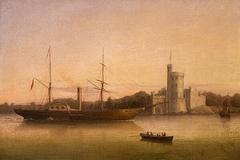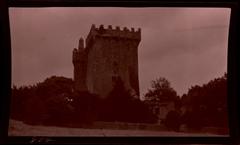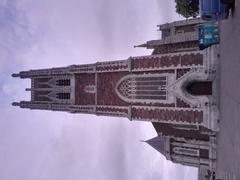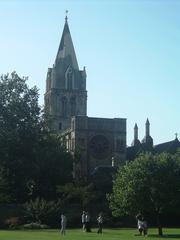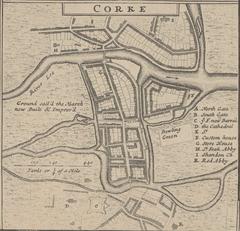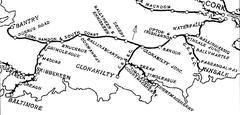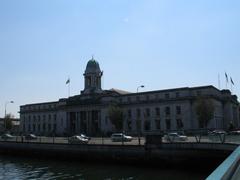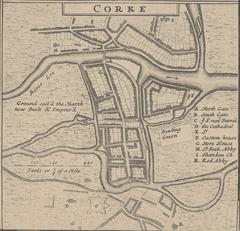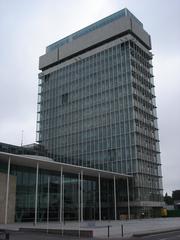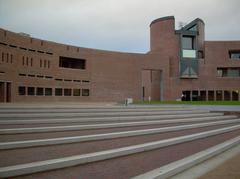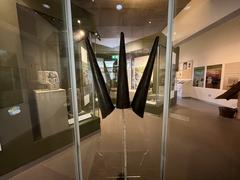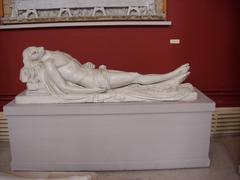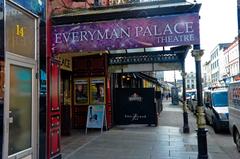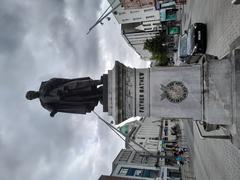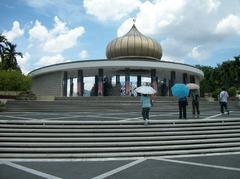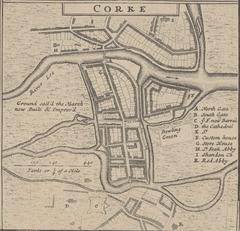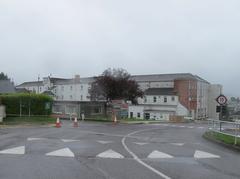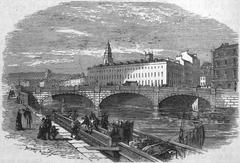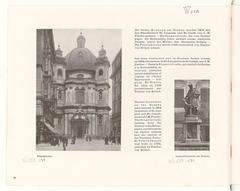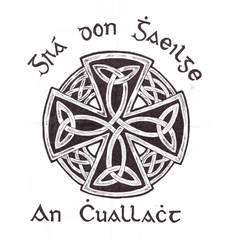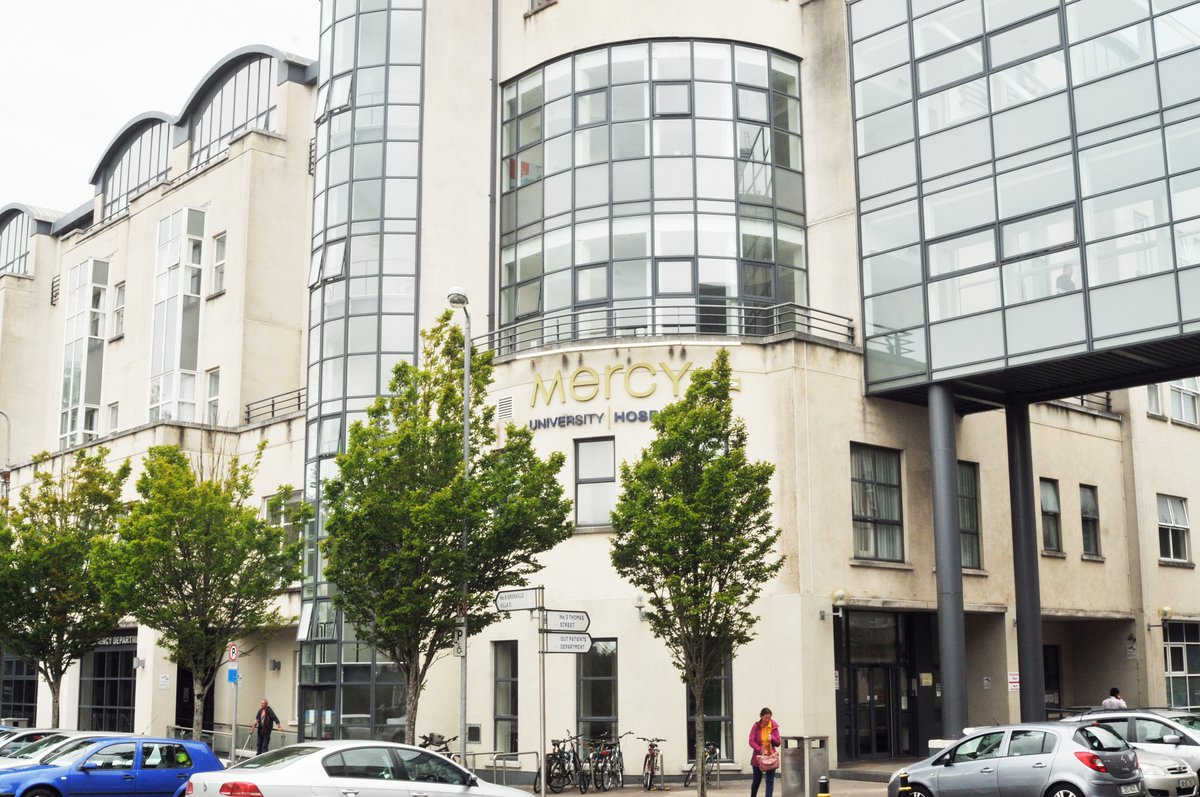
Mercy University Hospital Cork: Visiting Hours, Tickets, and Historical Significance
Date: 04/07/2025
Introduction
Mercy University Hospital (MUH) in Cork, Ireland, stands as both a leading healthcare institution and a living monument to the city’s history. Founded in 1857 by Catherine McAuley and the Sisters of Mercy, MUH began as a 40-bed facility dedicated to serving Cork’s sick and poor. Today, it has evolved into a 330-bed teaching hospital affiliated with University College Cork, treating over 130,000 patients each year and embracing innovation with initiatives such as the new Mercy Cancer CARE Centre. This comprehensive guide explores MUH’s history, cultural significance, and offers practical information for those planning a visit—whether to see a loved one, experience Cork’s heritage, or attend community events (Mercy Hospital Foundation, 2022; IVHA).
History of Mercy University Hospital
Founding and Early Years (1857–1900)
Established by Catherine McAuley and the Sisters of Mercy, MUH originally operated with four Sisters on a 16-acre site in Cork city centre (Mercy Hospital Foundation, 2022; IVHA). The hospital’s early mission was to provide care for the city’s most vulnerable, a legacy that continues to inspire its operations.
Expansion and Modernization (1900–1950)
As Cork expanded and healthcare advanced, MUH increased its capacity and specialties. The hospital remained open and vital during turbulent periods such as the War of Independence and Civil War, adapting to meet the demands of the community. Leadership gradually transitioned from the Sisters to include lay professionals, reflecting wider trends in healthcare.
Post-War Growth and Academic Affiliation (1950–2000)
The latter 20th century saw MUH expand to 330 beds and a wide range of specialties, including surgery, oncology, and critical care. Its academic partnership with University College Cork fostered research and innovation, cementing its reputation as a centre for clinical excellence (Mercy Hospital Foundation, 2022; IVHA).
Governance, Charitable Status, and Community Role (2000–Present)
In 2003, MUH formalized its governance as a company limited by guarantee, maintaining its voluntary, not-for-profit status (IVHA). The hospital now operates across several sites, including the Mercy Local Injury Unit and the Transitional Care Unit at St Mary’s Health Campus. The Mercy University Hospital Foundation (MUHF) has played a pivotal role since 2007, raising over €14 million for patient care and hospital improvements (Mercy Hospital Foundation, 2022).
Notable Figures and Events
Catherine McAuley, founder of the Sisters of Mercy, remains a touchstone for the hospital’s ethos of compassion. MUH has also played crucial roles in public health crises, most recently during the COVID-19 pandemic, implementing strict protocols to protect patients and staff (RTÉ News, 2025).
Recent Developments and Innovations
Significant recent advances include the Mercy Cancer CARE Centre at Dyke Parade, which opened in early 2024. This €2.8 million, psychologist-led facility provides psycho-oncology support unique in Ireland (Mercy Hospital Foundation, 2022). MUH continues to adopt new technologies, invest in staff training, and foster research partnerships.
Visiting Mercy University Hospital
Visiting Hours and Guidelines
Standard visiting hours are 2:00 PM to 8:00 PM daily, but these may vary by department or change due to public health measures. Always check the official website or call ahead for the latest details.
Accessibility and Directions
MUH is centrally located in Cork at Grenville Place, easily reachable by public transport, car, or on foot. Multiple bus routes stop nearby, and limited parking is available on-site. For specific accessibility queries, contact the hospital in advance.
Tours and Special Events
While routine public tours are not available, MUH occasionally hosts open days and community events. Watch the Mercy University Hospital Foundation and the hospital’s social media for announcements.
Nearby Attractions
Within walking distance are several of Cork’s key attractions:
- The English Market: Historic food market in the city centre
- St. Fin Barre’s Cathedral
- Cork City Gaol
- Crawford Art Gallery
Mercy University Hospital Chapel: A Historic Monument
History and Cultural Significance
Constructed alongside the hospital in 1857, the Mercy University Hospital Chapel embodies Victorian Gothic Revival design and serves as a spiritual sanctuary for patients, staff, and visitors. The chapel is recognized for its stained glass windows and intricate woodwork, reflecting MUH’s founding values of compassion and dignity (Mercy University Hospital Chapel Guide, 2025).
Visiting Information
- Location: Mercy University Hospital, Grenville Place, Cork
- Opening Hours: Monday to Friday, 9:00 AM – 5:00 PM (closed weekends)
- Admission: Free
- Accessibility: Wheelchair accessible
- Guided Tours: Available for groups by advance booking
Highlights
- Hand-crafted stained glass depicting religious and historical scenes
- Preserved Victorian altar and woodwork
- Quiet reflection area ideal for meditation and photography
Special Events
The chapel hosts occasional musical recitals and remembrance services. Check the events calendar on the hospital’s website for updates.
Visual Media
A virtual 360-degree tour is available on the official Mercy University Hospital website.
The Mansion House Cork: Heritage and Visitor Guide
Overview and Historical Significance
The Mansion House, built in 1767 as the Lord Mayor’s residence, later became the original site for MUH. The building represents Cork’s architectural and civic evolution, and occasional open days offer access to its historic interiors (Cork City Heritage).
Visiting Hours and Ticket Information
- Typical Visiting Hours: 9:00 AM to 5:00 PM on heritage open days
- Ticket Prices: Free on open days; some guided tours may have a nominal fee
- Booking: Check Cork City Heritage for announcements
Getting There
Centrally located on Grenville Place, the Mansion House is accessible by bus routes 205 and 208. Parking is off-site in nearby car parks.
Nearby Attractions
- Elizabeth Fort: 17th-century star fort with panoramic views
- River Lee Walks: Scenic trails
- Cork City Gaol: Museum in a historic prison
- English Market: Iconic local food market
Tours and Accessibility
Guided tours and educational workshops are offered during special events, often organized by Cork City Council or heritage groups. Access inside is limited due to hospital operations, but the grounds and exteriors are open for exploration.
Frequently Asked Questions (FAQ)
Q: What are the visiting hours at Mercy University Hospital?
A: Generally, 2:00 PM to 8:00 PM daily. Always confirm before visiting.
Q: Are tickets required to visit the hospital or chapel?
A: No tickets are needed for general visits; special events may require advance booking.
Q: Is the hospital and chapel accessible for people with disabilities?
A: Both are wheelchair accessible; for specific needs, contact the hospital in advance.
Q: Are tours available?
A: Regular tours are not offered, but special events and guided group tours can be arranged for the chapel and Mansion House during heritage open days.
Q: What are nearby attractions?
A: The English Market, St. Fin Barre’s Cathedral, Cork City Gaol, and Crawford Art Gallery are all within easy reach.
Tips for Visitors
- Check the hospital and heritage websites for the latest visiting hours and event announcements.
- Use public transport where possible due to limited parking.
- Respect the quiet and privacy in patient and reflection areas.
- Wear comfortable shoes for exploring nearby attractions.
Summary and Recommendations
Mercy University Hospital is a cornerstone of healthcare and heritage in Cork, seamlessly blending medical excellence with a rich historical legacy. From its founding by the Sisters of Mercy to its present status as a vibrant teaching hospital, MUH continues to serve its community while honoring the values of dignity and compassion (Mercy Hospital Foundation, 2022). The adjoining chapel offers tranquil reflection and Victorian architectural beauty, while the Mansion House connects visitors to Cork’s civic past.
Together, these sites form a unique cultural destination within Cork. Visitors are encouraged to explore surrounding attractions and to consult official resources for current information. Download the Audiala app for personalized travel tips and up-to-date heritage insights.

